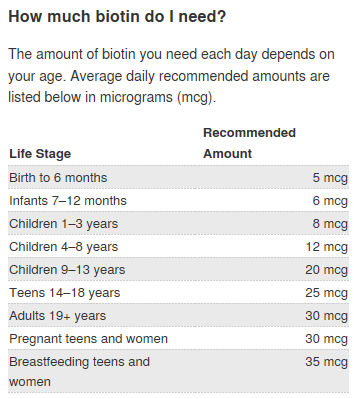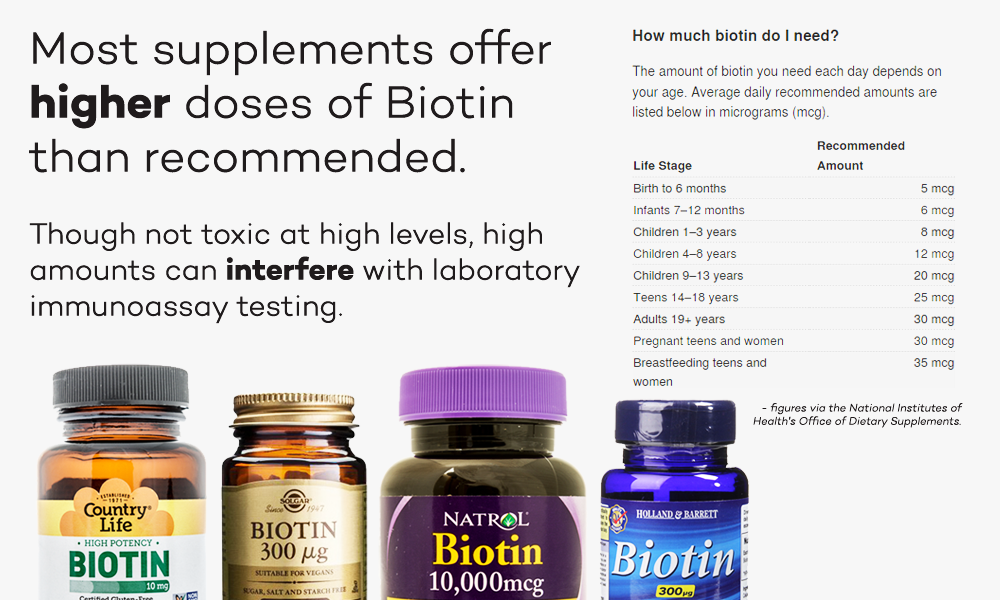Published September 2018 as part of Aculabs’ LabTalk quarterly newsletter.
Laboratory errors have been reported to be 0.012-0.6%; errors due to interference are less than 0.078%. One of the causes of interference in a laboratory is Biotin.

– National Institutes of Health’s Office of Dietary Supplements.
Biotin, known as vitamin B7 or vitamin H, is an essential coenzyme involved in carbon dioxide transfer in carboxylase reactions. Biotin started gaining popularity in the past few years as a beauty supplement and is marketed as strengthening nails, thickening hair, and improving skin; despite the recommended daily dose of 30 ug/day by the US Department of Agriculture, we start to see on the market and over the counter many tablets with doses over 10 mg.
Although biotin is not toxic at high levels, it might interfere with some assays that use biotin-streptavidin binding. Streptavidin and biotin form a strong, highly specific and sensitive bond which lead to using the streptavidin-biotin bond to develop sensitive, specific and accurate immunoassays. While there is no interference associated with the intake of biotin as part of the multivitamin, high levels of biotin in the blood may interfere with some assays, producing results that are inconsistent with the clinical assessment for the patient. It can cause a false increase in the results of a competitive assay and a false decrease in the sandwich assay that uses a biotin-streptavidin capture; these include assays used for thyroid testing, cardiac marker, anemia and other assays.
In the assays used by Aculabs, no interference was found if the biotin was taken within the recommended dose; however, samples should not be taken from patients receiving therapy with high biotin doses (i.e. > 5 mg/day) until at least 24 hours following the last biotin administration.
– Dr. Rita Khoury
Have a topic you’d want our Lab Director to cover in future posts? Send suggestions to info@aculabs.com!


Leave A Comment
You must be logged in to post a comment.